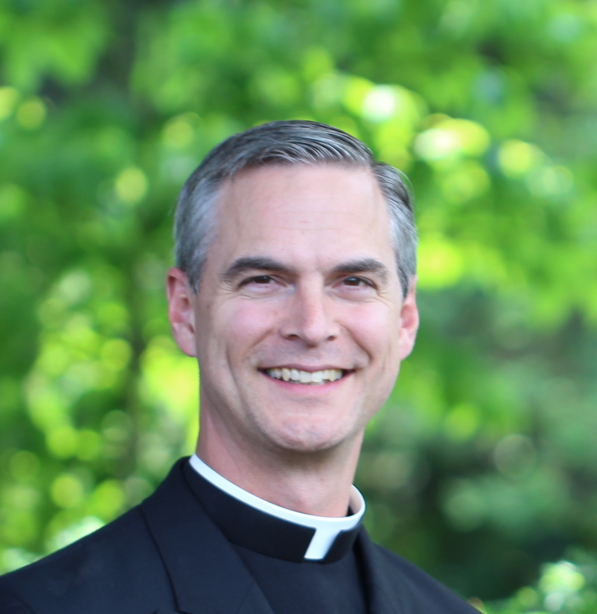
-partial restoration of “Hasekura in Prayer” following his conversion in Madrid, 1615, author unknown

-by Rev John Bartunek, LC
“…whether a person is struggling with idealism or cynicism, those feelings need to be identified and put in their proper place; we must make our decisions not based just on feelings, but based first and foremost on moral truth. Just as an idealistic husband has to learn to identify and accept the flaws of his young wife and continue to love her, so a cynical husband has to learn to see the inner beauty and goodness of his wife in order to continue honoring, loving, and revering her as God wants him to. Neither idealism nor cynicism, as understandable as they may be, can excuse sin. And publicly denouncing the divinity of Christ or one’s adherence to him as Lord…is a fault against the first commandment (CCC 2089).
Someone’s degree of culpability may certainly be diminished by circumstances like those faced by the characters in Silence. Likewise, individuals may repent of their sins and return to the faith. Only God knows the whole story of each person’s struggles, and only God can accurately judge the level of culpability, even though we all may be able to see the objective evil of a sinful action. This is why Jesus tells us: “Do not judge, or you too will be judged” (Matthew 7:1).
But we must be careful to avoid calling right something that is wrong. Many martyrs in the history of the Church refused to renounce their faith in the face of horrible pressures. It would have been more convenient for them and for others if they had simply renounced their faith in Jesus. And yet, they didn’t. The Church holds these martyrs up to us as models of courage and trust in God, as witnesses of a reality that goes well beyond the joys and sufferings of this earth: the reality of divine truth, eternal life, and friendship with God. A public denial of one’s faith in God may lead to the preservation of someone else’s physical life, but it may scandalize them to the point where they abandon their faith, perhaps putting their eternal salvation in danger. Scandal, too, is a dangerous sin:
“Scandal is an attitude or behavior which leads another to do evil. The person who gives scandal becomes his neighbor’s tempter. He damages virtue and integrity; he may even draw his brother into spiritual death.” (CCC 2284).”
“(from the Catholic Dictionary, CatholicCulture.org) Spiritual death is the state of the soul in mortal sin, based on the analogy with bodily death. Just as a physical body may be not only ill or suffer injury, but cease to retain its principle of life, so the soul can lose sanctifying grace through mortal sin and supernaturally cease to live. It is, therefore, spiritually dead because it is no longer united with God, who gives it supernatural life, even as a body is dead on separation from its animating principle, which is the soul. While still on earth, this union with God is both a possession and a movement. We possess Him by grace and in faith, and we are moving toward Him in the beatific vision of glory. When persons sin mortally, they are twice dead: once because they lose the gift of divine life they formerly had, and once again because they are no longer moving toward the consummation of that life in heaven.
Mortal sins are no longer remissible by any power within the soul itself, much as the human body, once dead, cannot be brought back to life except by a special intervention of God. In Patristic literature the restoration is compared with the resuscitation of Lazarus. The exercise of Almighty power in either case is the same. “Everyone who sins, dies,” says St. Augustine. Only the Lord, “by His great grace and great mercy raises souls to life again, that we may not die eternally” (In Joannis Evangelium,49). Only infinite mercy can reconcile the grave sinner.”
Love,
Matthew
Summa Catechetica, "Neque enim quaero intelligere ut credam, sed credo ut intelligam." – St Anselm, "“Si comprehendus, non est Deus.” -St Augustine, "Let your religion be less of a theory, and more of a love affair." -G.K. Chesterton, “When we pray we speak to God; but when we read, God speaks to us.” -St Jerome, "As the reading of bad books fills the mind with worldly and poisonous sentiments; so, on the other hand, the reading of pious works fills the soul with holy thoughts and good desires." -St. Alphonsus Liguori, "And above all, be on your guard not to want to get anything done by force, because God has given free will to everyone and wants to force no one, but only proposes, invites and counsels." –St. Angela Merici, “Yet such are the pity and compassion of this Lord of ours, so desirous is He that we should seek Him and enjoy His company, that in one way or another He never ceases calling us to Him . . . God here speaks to souls through words uttered by pious people, by sermons or good books, and in many other such ways.” —St. Teresa of Avila, "I want a laity, not arrogant, not rash in speech, not disputatious, but men and women who know their religion, who enter into it, who know just where they stand, who know what they hold and what they do not, and who know their creed so well that they can give an account of it, who know so much of history that they can defend it. I want an intelligent, well-instructed laity… I wish you to enlarge your knowledge, to cultivate your reason, to get an insight into the relation of truth to truth, to learn to view things as they are, to understand how faith and reason stand to each other, what are the bases and principles of Catholicism, and where lie the main inconsistences and absurdities of the Protestant theory.” (St. John Henry Newman, “Duties of Catholics Towards the Protestant View,” Lectures on the Present Position of Catholics in England), "We cannot always have access to a spiritual Father for counsel in our actions and in our doubts, but reading will abundantly supply his place by giving us directions to escape the illusions of the devil and of our own self-love, and at the same time to submit to the divine will.” —St. Alphonsus Ligouri, "The harm that comes to souls from the lack of reading holy books makes me shudder . . . What power spiritual reading has to lead to a change of course, and to make even worldly people enter into the way of perfection." –St. Padre Pio, "Screens may grab our attention, but books change our lives!" – Word on Fire, "Reading has made many saints!" -St Josemaría Escrivá, "Do you pray? You speak to the Bridegroom. Do you read? He speaks to you." —St. Jerome, from his Letter 22 to Eustochium, "Encounter, not confrontation; attraction, not promotion; dialogue, not debate." -cf Pope Francis, "God here speaks to souls through…good books“ – St Teresa of Avila, Interior Castle, "You will not see anyone who is really striving after his advancement who is not given to spiritual reading. And as to him who neglects it, the fact will soon be observed by his progress.” -St Athanasius, "To convert someone, go and take them by the hand and guide them." -St Thomas Aquinas, OP. 1 saint ruins ALL the cynicism in Hell & on Earth. “When we pray we talk to God; when we read God talks to us…All spiritual growth comes from reading and reflection.” -St Isidore of Seville, “Also in some meditations today I earnestly asked our Lord to watch over my compositions that they might do me no harm through the enmity or imprudence of any man or my own; that He would have them as His own and employ or not employ them as He should see fit. And this I believe is heard.” -GM Hopkins, SJ, "Only God knows the good that can come about by reading one good Catholic book." — St. John Bosco, "Why don't you try explaining it to them?" – cf St Peter Canisius, SJ, Doctor of the Church, Doctor of the Catechism, "Already I was coming to appreciate that often apologetics consists of offering theological eye glasses of varying prescriptions to an inquirer. Only one prescription will give him clear sight; all the others will give him at best indistinct sight. What you want him to see—some particular truth of the Faith—will remain fuzzy to him until you come across theological eye glasses that precisely compensate for his particular defect of vision." -Karl Keating, "The more perfectly we know God, the more perfectly we love Him." -St Thomas Aquinas, OP, ST, I-II,67,6 ad 3, “But always when I was without a book, my soul would at once become disturbed, and my thoughts wandered." —St. Teresa of Avila, "Let those who think I have said too little and those who think I have said too much, forgive me; and let those who think I have said just enough thank God with me." –St. Augustine, "Without good books and spiritual reading, it will be morally impossible to save our souls." —St. Alphonsus Liguori "Never read books you aren't sure about. . . even supposing that these bad books are very well written from a literary point of view. Let me ask you this: Would you drink something you knew was poisoned just because it was offered to you in a golden cup?" -St. John Bosco " To teach in order to lead others to faith is the task of every preacher and of each believer." —St. Thomas Aquinas, OP. "Prayer purifies us, reading instructs us. Both are good when both are possible. Otherwise, prayer is better than reading." –St. Isidore of Seville “The aid of spiritual books is for you a necessity.… You, who are in the midst of battle, must protect yourself with the buckler of holy thoughts drawn from good books.” -St. John Chrysostom


